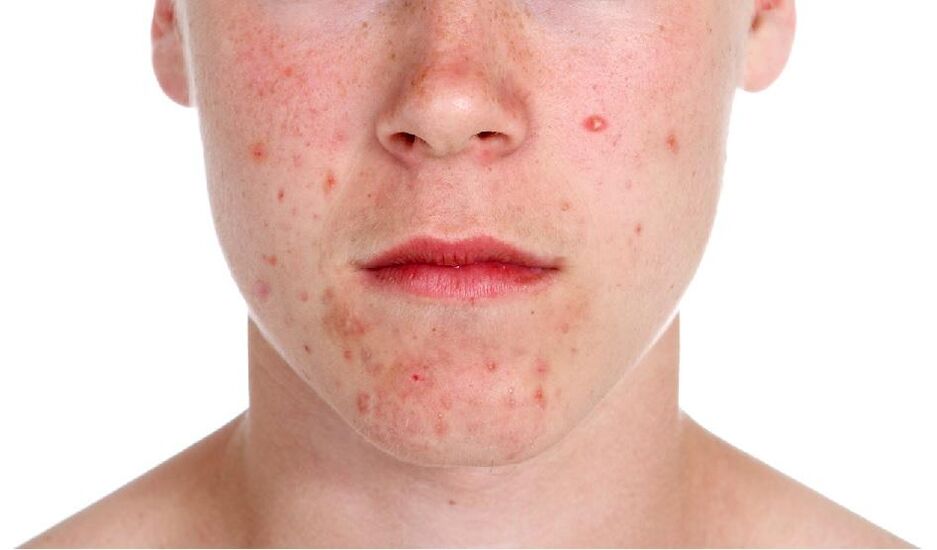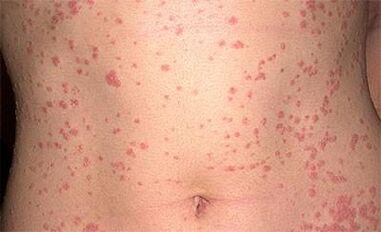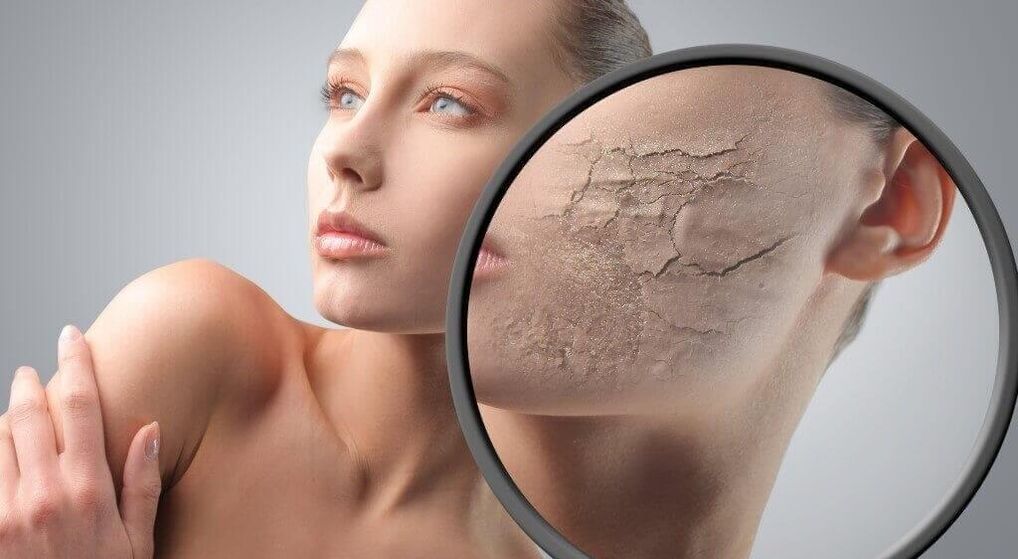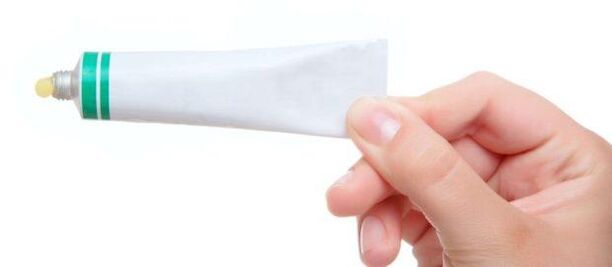Humanity knows many skin diseases in the modern world, and one of them is psoriasis.According to statistics, only three percent of the world's population faces this ailment.To recognize it in time, you must know the symptoms and causes of psoriasis.

What is psoriasis?
Sometimes it happens that people do not have the main signs of skin psoriasis in the form of red plates, so it is much more difficult to recognize it.Often, with psoriasis, itching to the skin.Psoriasis often occurs in the scalp, knees and the outer surface of the elbow.Less frequently, spots can occur in other parts of the body.Psoriasis is a non -infectious skin disease, accompanied by a characteristic manifestation of light pink inflammation in the form of white spots and scales.
Skin disease
This is a collective name for skin diseases, during which special symptoms are detected.Psoriasis refers precisely to such disease with inflammations pronounced in sensitive skin.Psoriasis is a non -infectious (non -contemporary) disease that has a chronic form.Emerging reddish points appear under the name as psoriatic plaques.Such points are a sign of chronic inflammation.They talk about the redundancy of the proliferation of lymphocytes and skin macrophages.Small capillaries on the skin also appear in excess.The reasons mentioned above imply an impressive seal and itching in places of inflammation.
Psoriatic spots
Inflamed spots can appear on the sensitive scalp, inside the palms and on the dolls, on the feet and in the genital area. Psoriatic spots or, as are called differently, the plates are generally formed for the first time in those places that regularly undergo friction with clothes: elbows and knees, especially their curves, the lower back and the outside of the thigh.Psoriasis is a disease that can be compared to a tide of waves.He has a wave -shaped course: with him, the remission and exacerbations caused by different circumstances are not excluded. Such circumstances may be excessive to drink drinks containing alcohol, the appearance of various infections and stressful conditions that cause the appearance of new inflammations. The remission is achieved thanks to systematic and adequate therapy.

The form of seriousness of the disease
The disease is completely different not only in different people, but also in one.For example, a person subject to stress or other reasons that cause exacerbation may be completely covered with reddish psoriasis points.Psoriasis does not necessarily affect the whole body, the disease sometimes spreads locally to specific areas of the skin.With a lack of adequate and timely therapy, the disease increases and occupies a large damage area.In different people, the disease happens differently: sometimes it is continuous, without obvious progress and remission.In severe cases, even nails are subject to the disease.In a severe course of the disease, joint problems may appear, caused by inflammatory processes and called arthropathy.
The causes of psoriasis
In the world, the reliable causes of psoriasis are still unknown. Inflammation may appear due to failures in immunity work in the human body, due to stressful situations and deteriorated metabolism. Many scientists believe that the appearance of psoriasis is due to a genetic factor.It is common to think that psoriasis in a child under ten years of age is an inheritance in which a non -infectious disease appeared.If the disease manifests itself in adulthood, this indicates that psoriasis due to some type of virus or infection.Factors whose presence in life can lead to psoriasis:
- Long states;
- Thin skin prone to dryness;
- Destructive health habits (most of the time alcohol abuse);
- Several infectious diseases (fungi, staphylococcus)
- Excessive skin hygiene;
- Hereditary predisposition;
- External irritating factors, poor ecology;
- Deteriorated metabolism that affects skin regeneration;
- Failure in the functions of the endocrine system (as a rule, are hormonal malfunction);
- The appearance of allergies;
- Liver disease;
- Colitis, enteritis, dysbiosis (all kinds of gastrointestinal tract disorders).

Psoriasis is not an infectious disease in which a person needs to be isolated.If you have direct contact with the disease bearer, okay, psoriasis will not be transmitted.The damage to the function of the skin barrier is a serious place in the exacerbation of the disease.Any lesion or irritation, friction, soap abuse and shower gels (excessive hygiene), regular contact with chemicals for harmful home, which cause skin irritation, can spoil such a barrier.Dry skin also leads to the thinning of the protective barrier. According to people subject to psoriasis, inflammation spotlights can suddenly increase or vice versa becoming less without obvious reasons.
Stress with psoriasis
It is worth remembering that often the first symptoms occur after a stressful state.Stress can be both physical and psychological.Symptoms may appear after several skin damage in places where the primary plates occurred.Psoriasis symptoms can occur in a person who has been sick with an infection.The conditions that cause this disease: chronic infections, acute and serious tensions, changes in climatic temperature.Alcohol abuse, smoking, excess weight, unhealthy nutrition complicate the course of the disease.Psoriasis treatment becomes difficult.All these conditions cause exacerbations, increase the area of the affected skin.Several decorative cosmetics with individually intolerable components can exacerbate psoriasis.It is worth reading products carefully, especially in products designed for the skin: creams, gels, lotions, etc.
People who suffer from HIV infection or AIDS are often subject to psoriasis.Such disease in sick people with HIV and especially with AIDS is quite difficult to treat.Often in such cases, standard therapy is ineffective.Very often, psoriasis is found in women, not in men.In addition, this disease is manifested in people with thin and dry skin.People with fatty skin and very milestone rarely suffer from such disease.In general, it is accepted that skin fat is a barrier that protects the skin from bacteria in which psoriasis occurs, and in dry skin with minimal skin, such a barrier is absent.Therefore, psoriasis is often manifested in skin areas subject to friction and chemical effects of substances (products to wash dishes, etc.).

Doctors recommendations
For people with psoriasis, in order to avoid dry skin, it is recommended not to use towels when washing and hard bushes with large granules.Such granules damage the skin and interrupt its protective function.The exfoliants leave small scratches and "destroy" the highest thin layer of the skin of the skin.Fight against scrap skin thickets, which hydrates the skin, so the skin is too dry, which is supposed to be psoriasis.Doctors recommend using a product that nourishes and hydrates sensitive skin.The category of such funds includes nutritional lotions that help in the work of the sebaceous glands.It is extremely undesirable to use soap, which dries the skin a lot and causes peeled.Wash dishes must be in special gloves, because this will allow the skin not to contact the dishwasher products, which can also cause the disease.Psoriasis is not considered an infectious disease, such an infectious disease.If there is more than one person in the family with psoriasis, this is due to the fact that the disease can be transmitted hereditaryly.
Psoriasis symptoms
The exact causes of psoriasis in the body have not been established, but their symptoms can be detected and timely treatment can begin.The most frequent symptoms of skin psoriasis:
- Itching feeling;
- Possible joint pain, because psoriasis sometimes affects them, causing psoriatic arthritis called S;
- The main symptom of psoriasis is the plates.Small rashes in the course of the disease are gaining fluids, open.Instead, the scabs have a light tone.Sometimes a yellowish plate is formed;
- Perhaps bleeding of psoriatic points.

Psoriasis of the skin is inflamed not only directly into the skin, but also on the nails.Although such cases are much less common, and the appearance of psoriasis in nail plates indicates a serious form of the disease.Due to psoriasis, joint pain and bones, in the spine and tendons, it is aggravated.The disease causes disorders in different body systems, namely and nervous.Violations in the endocrine system are not uncommon either.In this type of disease, kidneys, liver and thyroid gland are subject to various failures.A person who has psoriasis suffers from very tangible weakness, chronic fatigue and bad mood, which can become a stronger depression.Psoriasis began to be called Psoriaticck's disease, because it implies several consequences not related to the skin.
The psoriasis of the skin is characterized by a constant eruption that has the appearance of squamous spots of reddish tones.Such spots are not large, more often does not exceed three centimeters, but the problem is that this type of spots can chaotic together, which affects large areas of the skin.Typically, the first plates appear on the skin, in which frequent friction occurs due to the flexion of the limbs.Therefore, the spots first occur in the elbows and inside the knees.They also appear in the head and palms.The skin of the hands is often dries more than the skin in other parts of the body.This is due to contact with several harmful substances, for example, due to aggressive aggressive media.
Psoriasis treatment
When we discover what psoriasis is and how it manifests, we can do its treatment.Unfortunately, psoriasis is not completely cured, but it can enter a long remission in which the new plates will not be formed in the skin.For successful therapy, it is extremely necessary to take into account the factor at which stage the disease proceeds at this time.In relation to these factors, the main treatment is prescribed.The disease therapy is always there.To do this, use several medications: ointments designed for external use, physiotherapeutic procedures, a general regime to maintain remission.It is important not to forget other possible diseases, the patient's age, their field, several professional and health factors in general.

Heavy form
In a severe course of the disease (more than twenty percent of the body is affected) or if external treatment in the form of ointments does not help, severe pharmacological therapy is often recommended.Popular among patients with psoriasis is photochemistry.Photochemotherapy is the use of ultraviolet radiation, in which the patient also drinks tablets that increase their susceptibility to light.This is important: such medications can be selected exclusively only with your doctor.When selecting medications, weight and other individual characteristics are taken into account.These procedures are carried out more frequently four times a week, depending on the seriousness of psoriasis. As a general rule, the course of treatment consists of twenty -five sessions. This therapy has several contraindications, so it is very important to discuss other diseases available with a doctor.According to this, you will select medications and treatment.
Light form
With a slight form of psoriasis, sometimes non -traditional or popular medicine methods are used.In a simple form of psoriasis, when small areas of the skin are affected, sometimes only ointments are sufficient.In the modern world, there are many medications that can be bought in a pharmacy.For example, salicylic ointment softens skin shells, which helps exfoliate dry affected spots.Such ointment helps other drugs to better absorb the skin, which means that it makes them more effective for treatment.Sulfuric deler ointment reduces severe inflammation that causes unpleasant itching.The ointment has several indications that it is desirable to become familiar so as not to worsen the course of the disease.Such ointment is prohibited from using in the face.
For the scalp, there are shampoos with the tar content, which effectively reduce skin peeling.They apply only for an hour and then be washed completely from the skin.Psoriasis ointments with vitamin D have an anti -inflammatory property.Reduces psoriasis symptoms.The ointment applies to the affected places twice a day.When the therapy prescribed to the patient is ineffective, the use of external remedies is recommended, which include hormones.The treatment begins with soft medications, as a rule, the side effects are minimal, which is extremely important with high psoriasis.If the treatment does not provide effect and relief, you should pay attention to more serious ointments with the content of glucocorticosteroids.

The salicylic ointment is an anti -inflammatory agent.She is also an antiallergic agent.Therapy with such ointment does not last more than two weeks, is applied twice a day and is effective in severe forms, when psoriatic spots bleed and cause extreme discomfort.It also reduces active leukocytes and prevents them from entering the skin.Such ointment effectively suppresses dry skin, its oppression and also eliminates the feeling of itching.
The product does not cause allergies and reduces itching well.Psoriatic plaques when ointments are used are less humid.As a general rule, this ointment is often used in periods when inflammation spotlights increase.The duration of the therapy is prescribed by the doctor, but most of the time it is two weeks, it is applied twice a day to the affected areas of the skin.























